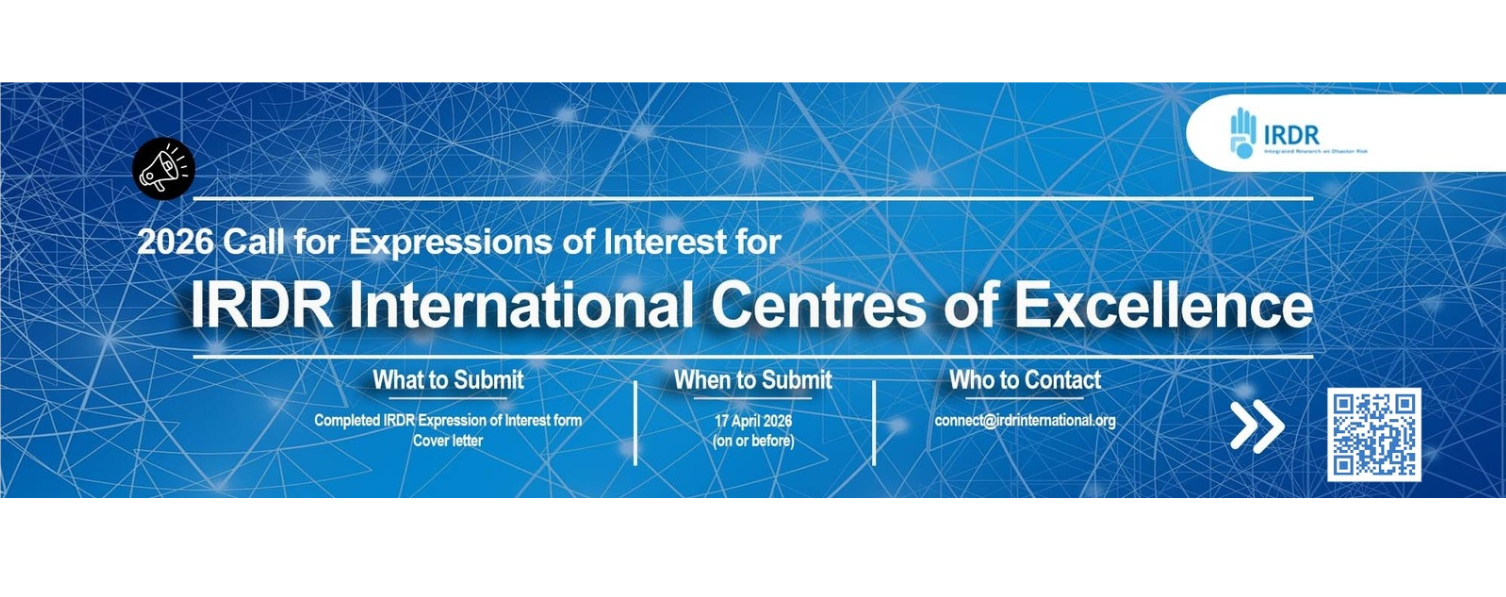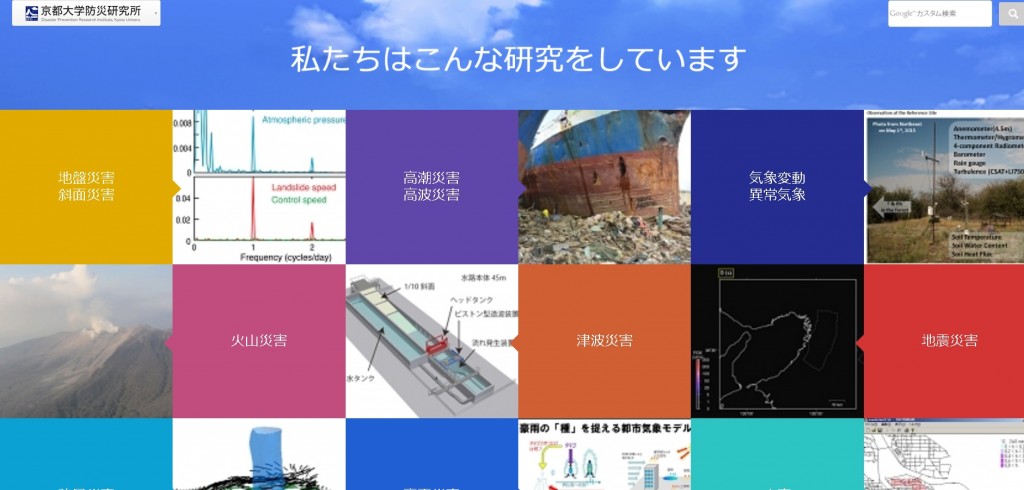IRDR Compilation 2010-2020: A Ten-Year Science Quest for Disaster Risk Reduction
IRDR Compilation 2010-2020, a comprehensive record of IRDR and its work over the past 10 years, was launched during the opening session of the IRDR 2021 conference on June 8th. This publication was developed by IRDR-IPO and by bringing together contributions from all members of IRDR community.
The IRDR Compilation presented the course of evolution of IRDR programme over the decade, the significant achievements in research and action made by IRDR community, science and policy efforts on DRR capacity buildings, the lessons learnt from DRR operation, as well as the challenges and opportunities for future cooperation. A total of 89 cases were collected and presented from IRDR Working Groups, National Committees, International Centres of Excellence, IRDR Young Scientists and IRDR Flagship Projects in accordance with the thematic and cross-cutting objectives of IRDR a decade ago. As commented by ISC and UNDRR in the preface, this Compilation "points toward next steps in a global risk reduction in an evidence-based and collaborative manner".
For download: /pdf/knowledge_pool/publications/868
A Framework for Global Science in Support of Risk-informed and Sustainable Development and Planetary Health
In 2019, anticipating the completion of IRDR’s first ten-year cooperation, the International Science Council (ISC) and the United Nations Office for Disaster Risk Reduction (UNDRR) invited the Integrated Research for Disaster Risk program (IRDR) to lead the development of a global research agenda for risk-informed development. The new research agenda should analyse the dynamic change of risk landscape and, through broad and in-depth consultations, to establish a new framework that would lead to more impactful international DRR research and stronger partnership for action. By bringing together over 80 experts from different research institutions, social groups and organizations, and with full participation of IRDR community, this Research Framework was launched in IRDR 2021 Conference and was officially issued at the ISC General Assembly 2021.
The Research Framework takes full stock of recent developments in disaster risk science and provides a compelling set of directions for research and scientific collaboration for a more holistic and collaborative approach to understanding and managing risks.
For download: /pdf/knowledge_pool/publications/888
IRDR 2021 Conference
Follow up the decision of 24th and 25th Sessions of IRDR Scientific Committee, IRDR 2021 International Conference “Advancing Risk Science for Development: 10 Years of IRDR -- Building a new risk research agenda for 2030 and beyond” was held during 8-10 June 2021. The Conference has six pre-sessions during April - May 2021. The overall purpose of the IRDR 2021 Conference is to reach a renewed consensus on the mission of STEI for DRR and put forward a novel proposal on the Global Research Agenda for disaster risk reduction and risk-informed development toward 2030 and beyond.
426 participants from 80 countries and regions attended the IRDR 2021 Conference, there were in total over 2.63 million views of live streams via Facebook and Twitter during the Conference. The roles of participants according to the registration record included academic researchers, decision-makers, practitioners, funding agencies, private sectors and other stakeholders in DRR. The young professionals, especially the IRDR young scientists, played important roles in the organisation and discussions in this Conference. The participants presented, discussed and worked towards advancing risk science for development safety.
The Conference consists of Pre-sessions, Opening and Closing Sessions, and Main Sessions. The six Pre-sessions brought forward very important perspectives of DRR research from different regions and sub-regions that have diverse DRR dynamics, and from thematic or cross-cutting DRR areas or research groups including young professionals and industries in DRR. The suggestions and recommendations from these Pre-sessions constituted timely input as well as part of the wide consultation process toward the Global Research Agenda and its future implementation. The three Main Sessions provided space to have relook on and discuss about the IRDR achievements and lessons learnt, the insights from IRDR community toward the Global Research Agenda and observations from multi-stakeholders. The three Keynote Sessions were instrumental in providing with the IRDR community with new knowledge, insights and experiences towards the changing landscape of DRR and risk dynamics, how to improve DRR knowledge in actions, as well as the challenges and opportunities for future cooperation.
Full information of the Conference: /pdf/irdr_conference
New ICoE
At 26th Scientific Committee Meeting (SC26) on 19 October 2021, the Chair of IRDR Scientific Committee announced the approval for the establishment of a new ICoE under IRDR National Committee Japan. The new IRDR International Centre of Excellence (ICoE) for Coherence among Disaster Risk Reduction, Climate Change Adaptation and Sustainable Development (IRDR ICoE-Coherence in abbreviation) is based on the Japan Hub of Disaster Resilience Partners which consists of 15 partner organizations including universities, research institutions and general associations.
More information at: /pdf/irdr_community/icoe
IRDR Working Paper Series
In 2021, IRDR released two Working Papers, which were taken also as input toward the development of the Research Framework:
- Mapping Disaster Risk Reduction Institutions Using Web-based Accessible Information provided six recommendations to future DRR international cooperation: (1) establishing an orientation process to development safety in DRR; (2) improving global disaster risk assessment and early warning systems; (3) developing scientific guidance on interdisciplinary and transdisciplinary disaster reduction; (4) combining science, engineering, and technology in decision support and policy making; (5) supplying more products from DRR data, information, and knowledge; and (6) enhancing disaster risk reduction capacity building, platform construction, and partnership promotion.
For download: /pdf/knowledge_pool/publications/861
- The State of Knowledge on Disaster Risk constitutes part of the new Research Framework document. This paper provides context, baseline information and a ‘state of knowledge’ on disaster risk science. Specifically, this paper aims to i) trace the development and evolution of relevant concepts and frameworks, ii) outline the application of relevant methods, tools and approaches, and iii) highlight emerging gaps in data, information, and knowledge.
For download: /pdf/knowledge_pool/publications/887





